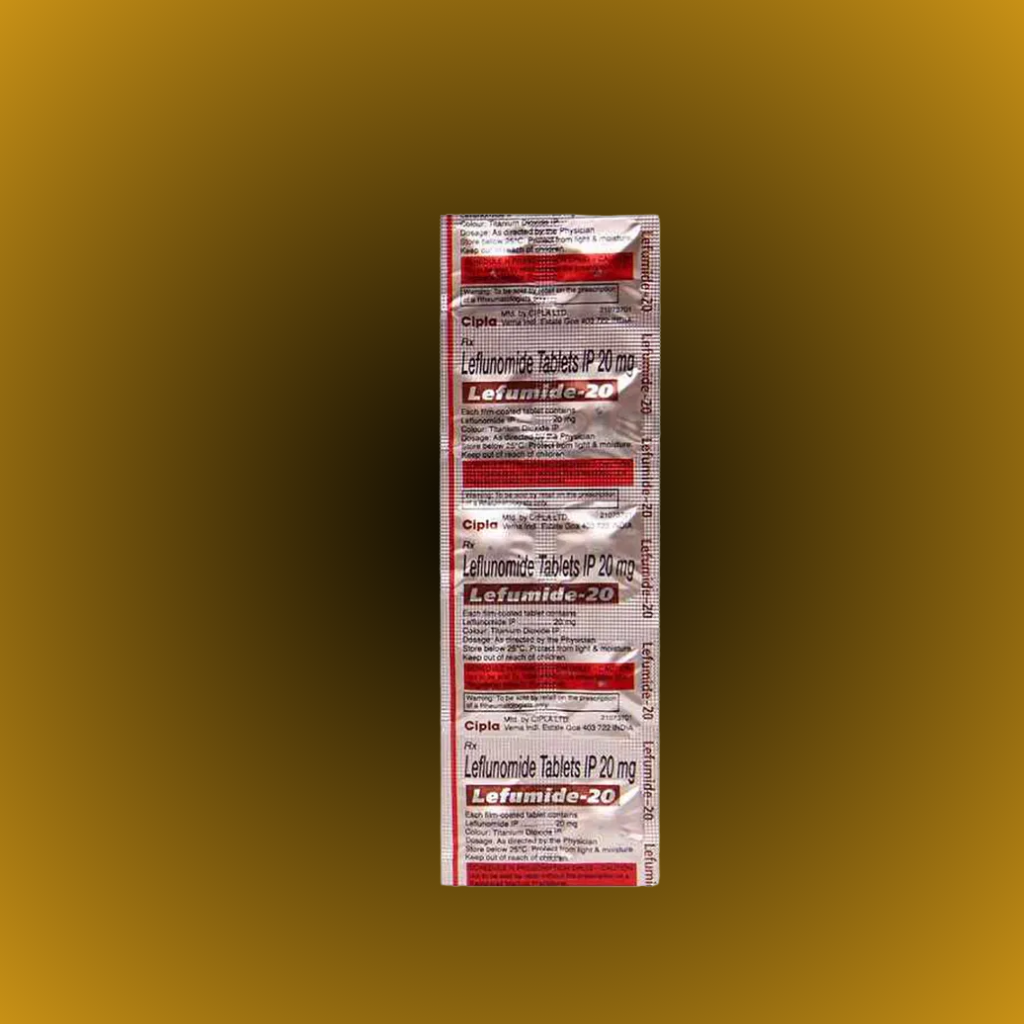Description
Leflunomide is an immunosuppressive medication that belongs to the class of drugs known as isoxazole derivatives. It works by inhibiting a specific enzyme called dihydroorotate dehydrogenase, which is crucial for the production of pyrimidines. Pyrimidines are essential building blocks for DNA and RNA, particularly for rapidly dividing cells, including certain immune cells (lymphocytes).
In autoimmune diseases like rheumatoid arthritis and psoriatic arthritis, the immune system mistakenly attacks the body’s own tissues, leading to inflammation, pain, swelling, and joint damage. By interfering with the proliferation and activation of these overactive immune cells, leflunomide helps to:
- Reduce inflammation: It dampens the immune response that causes pain, swelling, and redness in the joints.
- Slow down disease progression: Unlike symptomatic treatments, leflunomide addresses the underlying disease process, helping to prevent further joint damage and preserve joint function. This can significantly improve the quality of life for patients.
- Improve physical function: By reducing pain and stiffness, it allows patients to perform daily activities more easily.
It’s important to note that leflunomide is a long-term treatment and its full effects may not be noticeable for several weeks to months (typically 4-6 weeks to start feeling effects, and 4-6 months for full effect). It does not cure these conditions but helps to control them.
Important considerations:
- Leflunomide has a long half-life, meaning it stays in the body for an extended period. If treatment needs to be stopped (e.g., for pregnancy), a “washout” procedure with another medication (like cholestyramine) may be necessary to rapidly eliminate it from the system.
- It requires regular monitoring with blood tests (liver function tests and blood cell counts) due to potential side effects.
- It should not be used during pregnancy or breastfeeding due to the risk of harm to the baby. Effective contraception is crucial for women of childbearing potential.
- Alcohol consumption should be avoided or significantly limited due to the increased risk of liver damage.
Additional information
| form | PACK |
|---|





Reviews
There are no reviews yet.